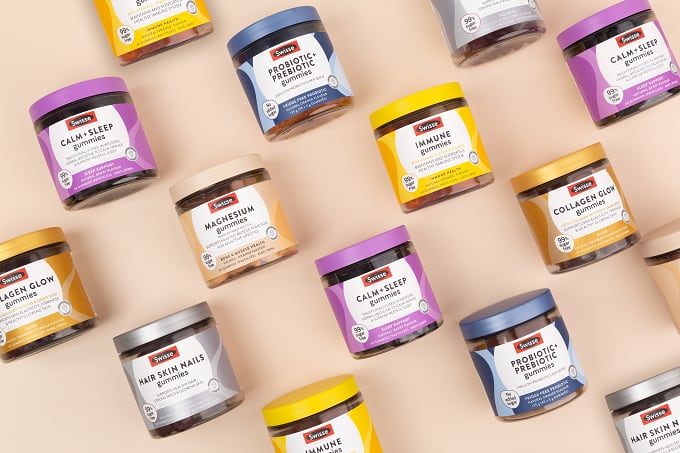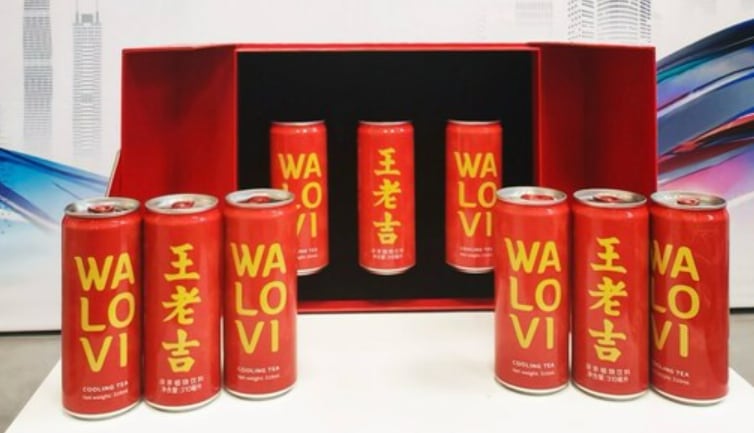Strong performance in mainland China has also pushed the company’s overall adult nutrition and care (ANC) revenue to a yoy growth of 14.1 per cent to RMB$1.5bn (US$211m) the company said in its financial results released on May 17.
Citing statistics from Early Data and Kantar Consumer Panel, H&H Group said that Swisse was ranked number 1 in mainland China’s online vitamin, herbal and mineral supplements (VHMS) market and number 2 in the overall VHMS market.
“Our ANC segment in mainland China continues to excel, accounting for 63.5 per cent of total ANC Group sales, as we continue to diversify our product portfolio with ranges such as Swisse Me and Little Swisse to capture a larger consumer base,” said Akash Bedi, Group CEO and CEO of North America, Europe, Middle East and India.
“Swisse Plus continues to stand out, making a double-digit contribution to total ANC China revenue,” Bedi added.
Aside from China, Swisse’s market share also grew 11.3 per cent to 12.2 per cent in Australia and New Zealand, the company said, citing IQVIA’s data.
The company believes that the performance was driven by its marketing campaigns, its focus on making its portfolio premium, and introducing innovations such as Swisse Gummies.
Including its adult, baby, and pet nutrition and care products, H&H Group’s revenue was down 9.3 per cent in Q1 this year to RMB$2.87bn (US$404.3m).
Of which, 70.3 per cent of its total revenue came from the sales of nutritional supplements.
Infant formula challenges drag down China’s overall profit
Despite the double-digit revenue growth in its China adult nutrition business, H&H Group’s overall revenue in mainland China was down 17.4 per cent to RMB$1.85bn (US$259.9m), due to the drag from its infant formula business.
For H&H Group, its infant milk formula sales in China had nosedived 34.4 per cent.
Three reasons were cited for the decline, including the transition to the new Guobiao (GB) or national standards, as well as a contracting infant milk formula industry, which are factors which have affected the entire industry in general.
However, aside from industry wide challenges, H&H Group also faced the challenge of its older goat infant formula series running out of stock and its new goat milk products experiencing delays in GB approval.
The two factors had caused a 38 per cent decline in the sales of its goat infant formula.
Growth Asia Summit 2024 will shine the spotlight on infant nutrition, with experts from Danone and Junlebao presenting insights in this area. Register now to attend the summit that is taking place on July 16 to 18 at Marina Bay Sands Singapore.
“In the 12 months to 31 March 2024, the entire IMF industry in mainland China contracted 12.2 per cent, in addition to navigating the transition to the new GB standards.
“Alongside this, we are gradually depleting the old ‘GB approved’ IMF (infant milk formula) stocks in the channels which led to a lower sell-in, compared to a more moderate sell-through decline of 12.7 per cent.
“Specifically, sell-through of our goat IMF declined by 38.0 per cent as stock of our older series of imported goat IMF ran out amid the delayed approval of our new ‘GB’ goat IMF series, while the decline in sell-through of our cow milk IMF was confined to 10.1 per cent,” said Bedi.
On the bright side, the company had seen its super premium infant formula grown from 11.7 per cent to 12.8 per cent in market share to the top three position.
This is despite the overall turndown in China’s super-premium segment, with the market shrinking 24.7 per cent, the company said, based on data from Nielsen.
Overall, the company’s infant formula revenue had decreased 32.9 per cent to RMB$625m (US$88m).
Amid the challenging China market, the company prioritising the expansion of its infant formula business to other markets.
An example is France where the company is said to have achieved the number one position in the organic infant milk formula category and the goat milk market within the pharmacy channel.
Sales of its paediatric probiotic and nutritional supplements in China was also down 41 per cent.
The company said this was due to the high base effect following a one-off surge in demand for probiotics in the same period last year.
Still, the company said that its paediatric nutritional supplements, not including probiotics, had seen growth of 159.5 per cent in China, driven by demand for products such as DHA and calcium.
Including all regions, the company’s overall paediatric probiotic and nutritional supplements saw its revenue dropped 40.6 per cent to RMB$223.5 million (US$31.5m).





